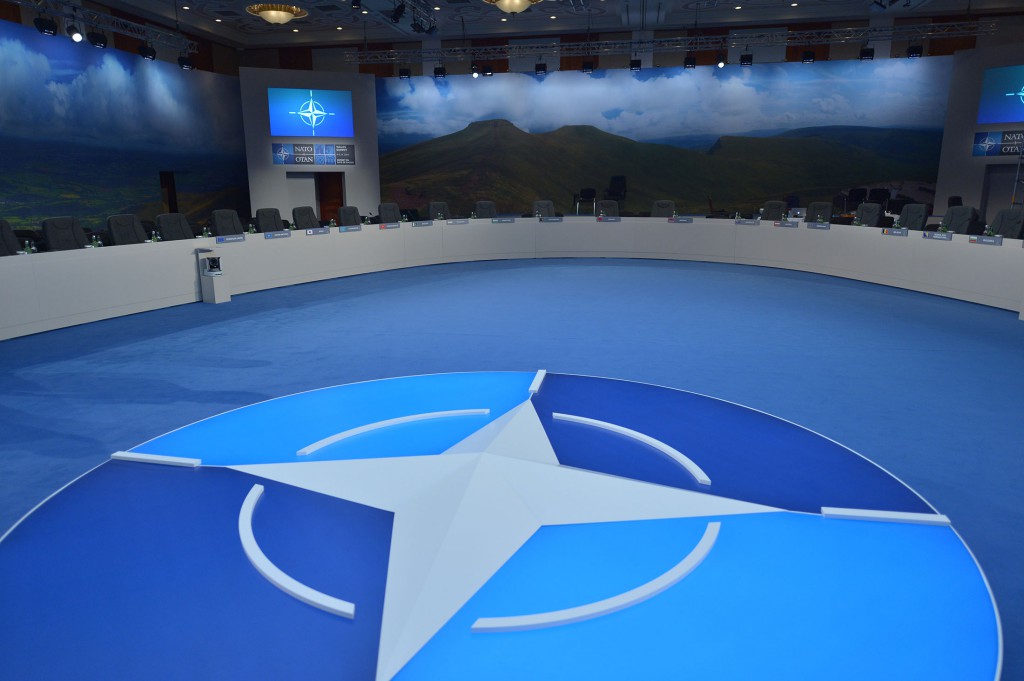 Foreign Minister Julie Bishop is heading a strong Australian delegation to the 2014 NATO Summit, which opens in the Welsh city of Newport later today. It will represent the largest gathering of international leaders ever to take place in Britain. And it couldn’t be happening at a more crucial time.
Foreign Minister Julie Bishop is heading a strong Australian delegation to the 2014 NATO Summit, which opens in the Welsh city of Newport later today. It will represent the largest gathering of international leaders ever to take place in Britain. And it couldn’t be happening at a more crucial time.
The Summit marks the draw-down of the NATO mission in Afghanistan, the longest in the history of the alliance, just as it has been Australia’s longest war. We now turn our attention to how we can best support the Afghan government and its armed forces to meet future challenges.
Meanwhile, the last six months have seen Russia illegally violate the sovereignty and territorial integrity of her neighbour Ukraine, and a brutal sectarian war rage across borders in the Middle East, attracting jihadist ‘foreign fighters’ from both the UK and Australia, as well as many other countries. And a commercial airliner has been shot down by what appears to be advanced military hardware in the hands of irregular rebel forces, killing hundreds of innocent civilians from countries unconnected to events on the ground.
If some of the challenges facing NATO and its partners feel painfully reminiscent of the shared Cold War past we had hoped to leave behind, then others are only emerging for the first time. For example, how can a defensive alliance respond to a cyber attack on one of its members?
Perhaps some Australians may be asking why Australia should care what happens on Europe’s eastern borders or in the Middle East’s increasingly horrific civil wars? The answer is that those events show that domestic or regional issues in faraway places can now quickly have global impacts. Thirty eight Australians tragically lost their lives on board MH17—while some of their countrymen were travelling to Syria and Iraq to join others from around the world, taking part in acts of extreme barbarity.
The challenges we face are complex and global. So we need to work together to address them, particularly through alliances like NATO. Australia is one of the Alliance’s most important partners, as the immensely valuable contribution of the Australian Defence Force to the NATO-led ISAF mission in Afghanistan has amply demonstrated. Our commitment to working with partners outside of the Alliance’s 28 members was enshrined in NATO’s 2010 Strategic Concept but the partnership approach is much older than that. It was particularly notable in Afghanistan, where a coalition of 50 nations developed new ways of working at unparalleled levels of co-operation.
You only have to look at the seamless way that Australian and Dutch forces co-operated in the aftermath of the downing of MH17—a result of years of working alongside each other in the crucible of Afghanistan’s Uruzgan province—to see how valuable that experience can be. We’re determined not to lose that hard-won experience and capability as our combat mission draws to a close.
That’s why NATO foreign ministers and their counterparts from partner countries have agreed an ‘Interoperability Initiative’ setting out how NATO can improve future interoperability between itself and its 24 partners. The Summit will also establish a smaller, more operationally-focused group of ‘enhanced’ partners, including Australia, to discuss opportunities for even greater co-operation in pursuit of our shared security interests.
This level of co-operation and interoperability will allow us to respond more quickly to threats and it will help deter those who might seek to further their aims through aggression. Strengthening NATO’s ability to deter aggression is a key aim of the Summit. The event will see discussion of long-term measures designed to achieve that objective, such as delivering on the Readiness Action Plan proposed by Secretary General Anders Fogh Rasmussen and increasing the level of defence investment among alliance members. Currently, the UK is one of only four members that meet the defence spending target of 2% of GDP. Australia has committed to do so by 2023-24.
This meeting is an important one for NATO and for global security. Its outcomes will be closely watched. It’s good that Australia will be there in strength.
His Excellency Paul Madden CMG is the British High Commissioner to Australia. Image courtesy of NATO.

